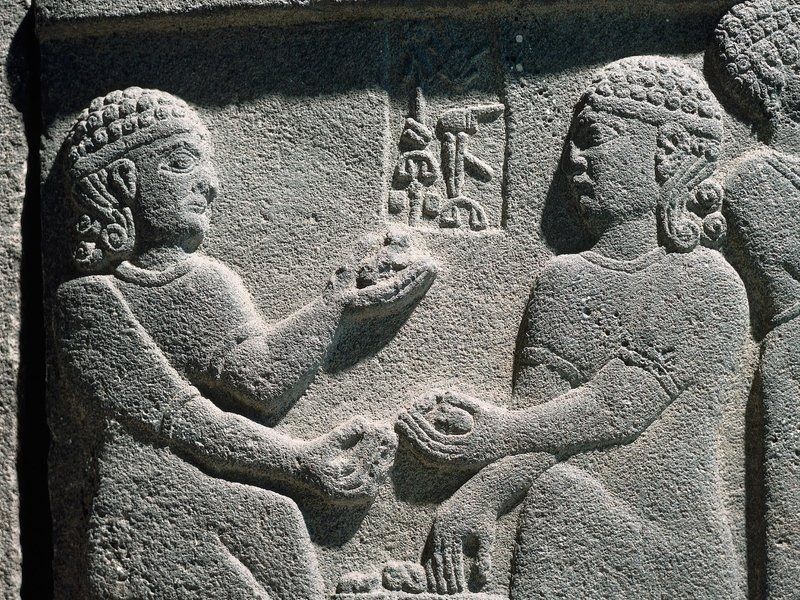Post by UKarchaeology on Sept 27, 2015 21:50:51 GMT

* The chef crushed buckwheat on stones and used no kitchenware other than a knife
One way to study ancient civilizations is to find out what they ate. Cuisine tells a lot about the climate, culture and preferences of the eaters. But instead of trying to reverse engineer the food of a culture based on the effects that can be read from ancient bodies, or merely translating old recipes, some researchers decided to actually prepare ancient foods.
An article at Daily Sabah explains how Aykut Çınaroğlu, a professor of archaeology at Ankara University in Turkey teamed up with chef Ömür Akkor to prepare a meal that might have appeared on Hittite tables 4,000 years ago. Akkor explains that the meal was based on information gleaned from ancient tablets found in Alacahöyük, an important ancient settlement.
"Ancient settlers wrote that they ate cold meat, cooked onion and bread on a festival day," he says. "They did not use yeast while making bread or cook them in moist ovens. The team tried to make it with pounded wheat, not sifted flour." The tablets also included details about olive oil, honey and vegetables as well as the names of more than 100 pastries. The Hittites were an ancient people who established an empire in much of Asia Minor and parts of the northern Levant and upper Mesopotamia from roughly 1600 B.C. to 1200 B.C. They were also sophisticated cooks.
In a 2012 article from Hurriyet Daily News, Wilco van Herpen writes that "The Hittites used to record everything, including cuisine recipes, prayers, the relationships of the priests or chefs toward the gods, really just about absolutely everything."
(pic & source: www.smithsonianmag.com/smart-news/archaeologists-recreate-4000-year-old-hittite-feast-better-understand-their-history-180956661/?no-ist )
